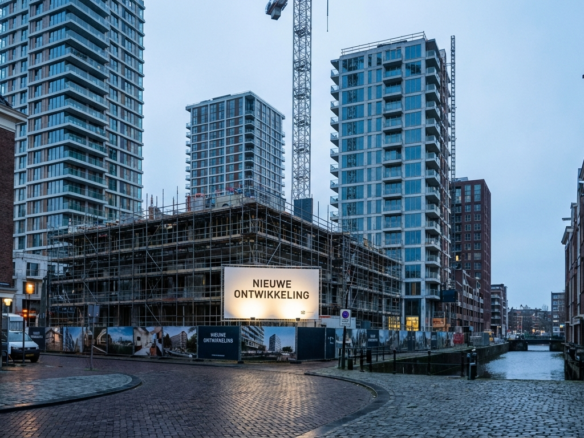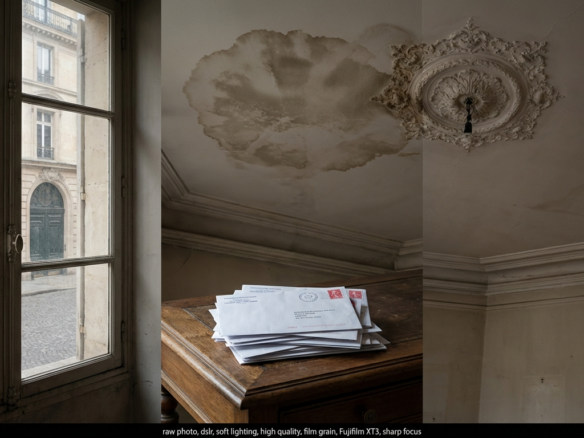The Shocking Reality of Athens’ Housing Crisis
Athens, the historic capital of Greece, faces a paradoxical housing situation that has left experts and residents alike scratching their heads. Despite a growing demand for affordable housing and an influx of tourists seeking short-term rentals, approximately 25% of all residential properties in the city remain completely vacant. This staggering statistic represents tens of thousands of empty homes scattered across various neighborhoods, from the city center to suburban areas. The phenomenon has become so widespread that it’s impossible to ignore the darkened windows and neglected balconies that dot the urban landscape.
Get 50% OFF!
Subscribe to our newsletter and enjoy a 50% discount on all listing packages, no strings attached!

The scale of this crisis becomes even more apparent when you consider the actual numbers involved. Out of hundreds of thousands of residential units in Athens, roughly one in every four stands empty, neither occupied by residents nor generating rental income for their owners. This situation creates a unique urban challenge where housing shortages coexist with massive vacancy rates. The empty properties range from small apartments in dense neighborhoods to larger family homes in quieter districts, painting a picture of a city struggling to match its housing stock with actual living needs.
Economic Collapse Left Thousands of Properties Abandoned
The roots of Athens’ empty housing crisis stretch back to the devastating economic collapse that shook Greece to its core over a decade ago. When the financial crisis hit in 2008 and intensified through the following years, the Greek economy contracted by more than 25%, leaving deep scars on the housing market. Property values plummeted dramatically, sometimes losing 40% to 50% of their pre-crisis value. Many homeowners found themselves trapped in a nightmare scenario where their properties were worth less than the mortgages they owed, while simultaneously lacking the financial means to maintain or renovate their homes.
The economic devastation created a domino effect throughout the housing sector. Construction companies went bankrupt, leaving unfinished buildings across the cityscape. Banks tightened lending requirements to extreme levels, making it nearly impossible for potential buyers to secure mortgages even when they wanted to purchase property. Unemployment soared, reaching levels above 27% at the crisis’s peak, which meant that even Greeks who wanted to buy or rent couldn’t afford to do so. The combination of these factors created a perfect storm that left thousands of properties sitting empty, gathering dust while their owners struggled to survive the economic turmoil.
Why Owners Can’t Sell Their Empty Homes
The inability of property owners to sell their vacant homes stems from a complex web of interconnected problems. First and foremost, many owners face the harsh reality that their properties require substantial renovations before they can attract buyers or renters. Years of neglect during the economic crisis have left countless homes in poor condition, with outdated plumbing, electrical systems, and structural issues. The cost of these renovations often runs into tens of thousands of euros, money that owners simply don’t have. Without the ability to invest in improvements, these properties remain unmarketable, stuck in a limbo where they’re too rundown to sell but too valuable to abandon.
Beyond renovation costs, Greek property owners face additional obstacles that make selling or renting difficult. The country’s complex bureaucracy requires extensive paperwork and permits for property transactions, creating delays and additional expenses. Property taxes have increased significantly since the crisis, adding financial pressure on owners who aren’t generating income from their vacant properties. Furthermore, inheritance laws in Greece often result in properties being owned by multiple family members, making decision-making about sales or renovations complicated and contentious. Many elderly owners lack the technical knowledge or physical ability to navigate the modern real estate market, particularly the digital platforms that have become essential for property transactions. These combined factors create a situation where keeping a property empty seems like the path of least resistance, even though it generates no income.
What This Means for Greece’s Future Recovery
The massive vacancy rate in Athens has profound implications for Greece’s economic recovery and social development. On one hand, this represents an enormous untapped resource that could address housing affordability issues if properly mobilized. The Greek government has recognized this potential and has begun implementing policies to encourage property owners to bring their vacant homes to market. These initiatives include tax incentives for renovations, streamlined permitting processes, and programs that connect owners with renovation financing. If successful, converting even a fraction of these empty properties into livable homes could significantly ease housing pressure and provide economic stimulus through construction jobs and increased property tax revenues.
However, the path forward remains challenging and requires coordinated efforts from multiple stakeholders. Urban planners are advocating for neighborhood revitalization programs that go beyond individual properties to improve entire districts, making them more attractive to potential residents. The tourism boom in Athens, while controversial for contributing to overtourism concerns, has created opportunities for property owners to convert vacant homes into short-term rentals, though this must be balanced against the needs of local residents for long-term housing. The success of Greece’s recovery may well depend on how effectively the country can transform this housing crisis into an opportunity. By bringing these properties back to life, Athens could not only solve its vacancy problem but also create more vibrant, economically diverse neighborhoods that benefit both residents and the broader economy.
Frequently Asked Questions
Why are so many homes empty in Athens?
The primary reason for Athens’ high vacancy rate is the economic crisis that devastated Greece’s economy starting in 2008. Property values crashed, unemployment soared, and many owners lacked the financial resources to maintain or sell their properties. Additionally, complex bureaucracy, high renovation costs, and inheritance complications have made it difficult for owners to put their properties on the market.
Can foreigners buy these empty properties in Athens?
Yes, foreign buyers can purchase property in Greece, and the government has actively encouraged foreign investment in real estate. However, buyers should be aware that many vacant properties require significant renovations and that navigating Greek property law can be complex. It’s advisable to work with local real estate professionals and legal experts when considering such purchases.
What is the Greek government doing about empty homes?
The Greek government has introduced several initiatives to address the vacancy crisis, including tax incentives for property renovations, streamlined permitting processes, and programs to help connect owners with financing options. There are also discussions about implementing vacancy taxes to encourage owners to either sell or rent their empty properties.
How does this affect rental prices in Athens?
Paradoxically, despite the high vacancy rate, rental prices in desirable Athens neighborhoods have been increasing, partly due to the tourism boom and short-term rental platforms. However, many of the vacant properties are in less desirable locations or require extensive work before they can be rented, which explains why they haven’t helped moderate rental prices in popular areas.
Are the empty homes concentrated in specific areas of Athens?
Empty properties are found throughout Athens, but certain neighborhoods have higher concentrations. Areas that experienced significant economic decline, older districts with aging infrastructure, and neighborhoods farther from the city center tend to have more vacant properties. However, even central areas have notable numbers of empty homes.
What condition are most empty properties in?
The condition varies widely, but many vacant properties have deteriorated due to years of neglect. Common issues include outdated electrical and plumbing systems, structural problems, and cosmetic damage. Some properties would require substantial investment to make them habitable, while others might need only minor updates.
In short
Athens’ housing vacancy crisis represents both a significant challenge and a remarkable opportunity for Greece’s future. The fact that one-quarter of the city’s homes sit empty while housing affordability remains a pressing concern highlights the complex legacy of the economic crisis and the structural issues within Greece’s property market. However, this situation also presents a unique chance to revitalize neighborhoods, create economic opportunities, and address housing needs without new construction.
The path forward requires coordinated action from government officials, property owners, investors, and urban planners. By addressing the barriers that keep these properties off the market through renovation incentives, bureaucratic reforms, and creative financing solutions, Athens could transform its vacant housing stock into a catalyst for urban renewal. The success of these efforts will not only determine the future of Athens’ housing market but will also serve as a barometer for Greece’s broader economic recovery and its ability to overcome the lasting impacts of its financial crisis.





Join The Discussion